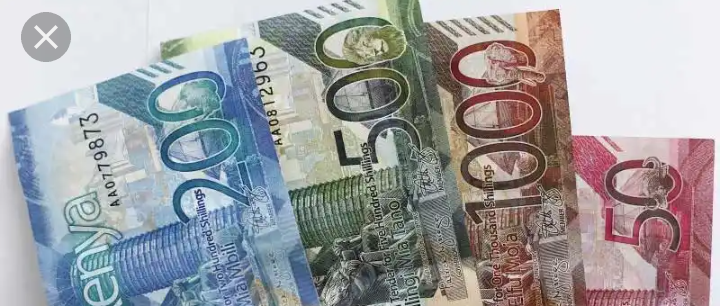
Bad News As Kenyan Shilling Slides To Ksh.123 Mark Against The U.S Dollar
- The Shilling was quoted at Ksh.123.02 near the close of trading on Friday taking its year to date losses against the green buck to nearly nine per cent.
- The continued losses for the local currency are largely attributable to a stronger dollar of the back of higher interest rates in advanced economies and portfolio outflows by foreign investors from emerging and frontier markets such as Kenya.
The Kenyan Shilling has extended its year to date losses against the US dollar, sliding below the Ksh.123 mark,
breaching yet another confidence marker for the local currency.
The Shilling was quoted at Ksh.123.02 near the close of trading on Friday, taking its year to date losses against the green buck to nearly nine per cent.
The continued losses for the local currency are largely attributable to a stronger dollar of the back of higher
interest rates in advanced economies and portfolio outflows by foreign investors from emerging and frontier markets such as Kenya.
At the same time, the local unit has come under pressure from a widening current account deficit driven largely by a higher export bill.
Higher foreign debt payments have meanwhile depleted Kenya’s official foreign currency reserves at the Central Bank of Kenya (CBK) which presently
stand below the statutory threshold of an equivalent four months of import cover.
Away from the weakening official rate, analysts have continued to dispute the true value of the Kenya Shilling,
attributing continued Forex (FX) shortages in the country to a potential over-valuation of the local unit.
Analysts at EFG Hermes have for instance called for the devaluation of the Kenyan Shilling to reflect its ‘true’ value as they blame discrepancies in the
official rate to foreign investor apathy with the investors shunning the Kenyan market to escape potential FX losses.
“The first reason as to why there is a problem is that the price is wrong. Supply does not meet demand at official
rates. The price of currency needs to change,” said EFG Hermes Head of Macro Strategy Simon Kitchen.
The CBK has nevertheless stuck to its gun insisting it maintains a flexible exchange rate, intervening only to minimize volatility.
